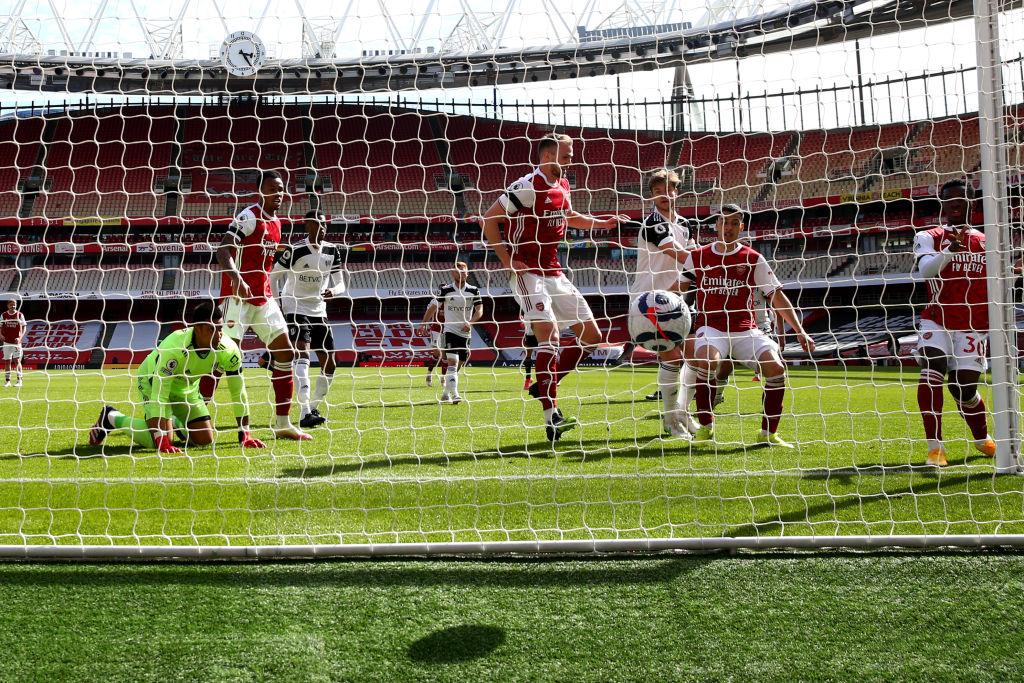In the 1950s and 1960s when I first visited grounds other than Craven Cottage, I soon reckoned Highbury to be the most impressive club stadium in London.
It was the place for a neutral to watch the best of British teams and occasional visitors like the Real Madrid that featured Alfredo di Stephano and Ferenc Puskas.
Standing on the terraces there as a Fulham supporter proved less rewarding. In the 1950s, the results were 2-1, 5-1, 4-3 and 2-0 to the home side. Sixty years ago (Easter 1961), I made my way to north London expecting another defeat. With the match following the usual pattern the Gunners were coasting 2-0. Suddenly Johnny Haynes gathered the ball and powered through the home defence. Having astonished everyone, he calmly repeated the feat, cancelling Arsenal's lead. 2-2 and a point at Highbury!
A similar score in January 1964 saw Haynes and Bobby Howfield sharing the goals but even with our iconic captain Fulham could never prevail at Highbury. Nor did Al Fayed's millions conjure a victory – but on Sunday at the Emirates the impossible ever so nearly happened.
The opening passage of play seemed to presage a heavy defeat, Gabriel Martinelli having two clear chances in the first eight minutes. His first effort went narrowly wide, while his second was well saved by Alphonse Areola. Fulham hastily sorted themselves out and it was Josh Maja's turn for a near miss.
In the 40th minute, a passing movement involving Bukayo Saka and Hector Bellerin ended in Dani Ceballos placing a well-directed header past Areola. The officials signalled it was a goal but VAR showed that Saka's toes had been offside in the build-up – another example of technology ad absurdum but a welcome relief for Fulham. Before the interval Granit Xhaka also had a goal disallowed for offside though this decision was less controversial.
Despite these scares a draw seemed achievable.
Unexpectedly, Fulham went ahead in the 59th minute when Mario Lemina caught Gabriel off guard and surged into the penalty area, tumbling dramatically when the Brazilian tried to dispossess him. After a nerve-wracking delay, Josh Maja thumped the spot-kick into the roof of the net.
As currently employed, VAR runs the risk of spoiling the game – but it sometimes works in Fulham's favour.
Lemina, whose accidental handball saved Liverpool from defeat, will have had no qualms about the penalty awarded against Gabriel.
Mikel Arteta sent out Eddie Nketiah, Nicolas Pepe and mid-fielder Thomas Partey to provide the necessary goals. In response Scott Parker called on Harrison Reed to strengthen the defence. For more than half an hour Fulham withstood every challenge, with one of Areola's saves bordering on the impossible.
Well into the seven minutes of added time, the Arsenal keeper Maty Ryan raced upfield to join the attack. Could it possibly lead to Harrison Reed or some other bright spark capturing the ball and sending it into an unguarded net?
Sadly, Arsenal did not lose possession. From a corner Ryan headed the ball to Ceballos, whose shot penetrated the crowded penalty area. Areola managed a block only for Nketiah to pounce on the rebound and score.
Sixty years ago, I felt exhilaration that Fulham had snatched a point from Arsenal. But this Sunday's result was crushing for the fans as well as for the players and management.
Did you see Antiques Roadshow?
Fulham supporters seeking entertainment to take their minds off the match might have watched that evening's Antiques Roadshow.
Among the participants was the great-granddaughter of Ned Liddle, armed with his scrapbook, photographs and original contract. Though born in the North East of England in 1878 he was especially active in London as a player, scout or manager for the Orient, Arsenal, QPR, Fulham, West Ham, Chelsea, Brentford and Spurs. (He must have been averse to South East London.)
The scrapbook's owner did not mention Fulham, and Ned may not have retained any souvenirs of his unproductive spell at the Cottage but it was interesting to hear about his life (he remained active in the game up to his late 80s) and to wonder how many other such collections still survive in private ownership.
The views expressed in this blog are those of the author and unless specifically stated are not necessarily those of Hammersmith & Fulham Council.
Want to read more news stories like this? Subscribe to our weekly e-news bulletin.

